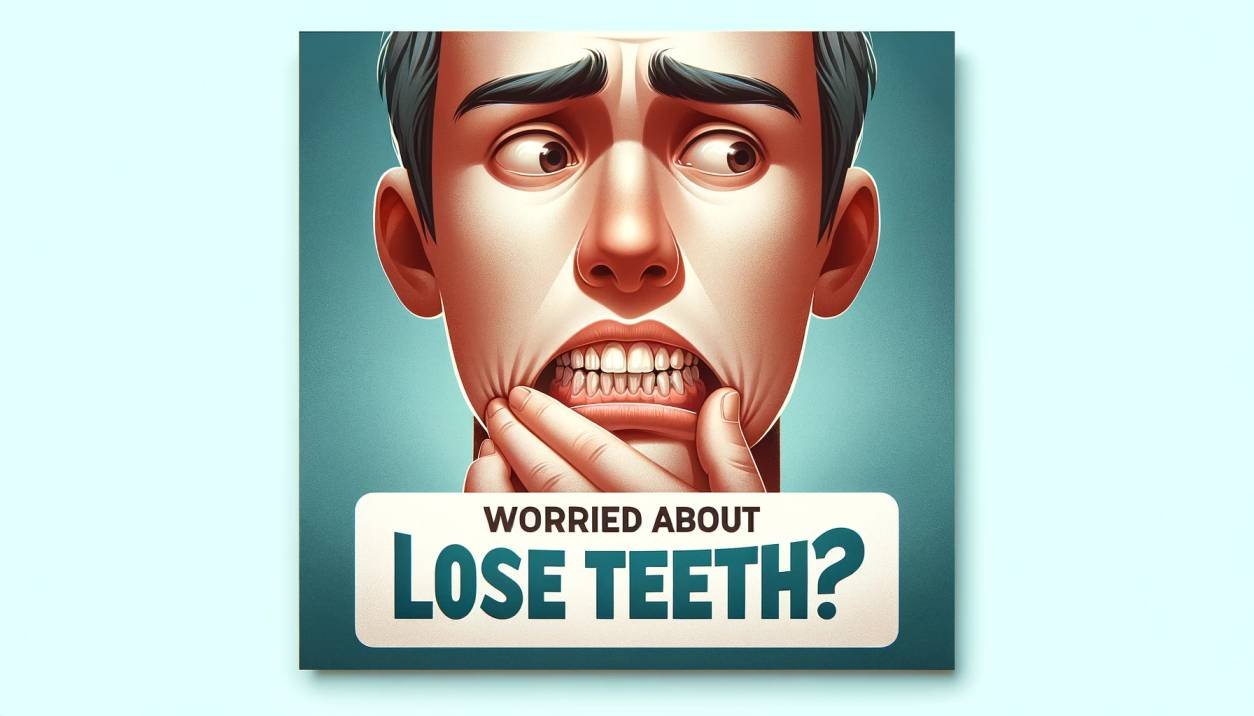
Worried About Loose Teeth? Don’t Panic, Get Help!
January 22, 2024A nagging wiggle. A slight shift with every bite. The unsettling feeling of a tooth not quite where it should be. If you’re experiencing loose teeth, it’s natural to feel a twinge of worry. But before you jump to worst-case scenarios, take a deep breath and know that you’re not alone. Loose teeth are a common concern, and thankfully, there are solutions available.
Why Do Teeth Loosen?
There are several reasons why teeth might become loose. Some of the most common culprits include:
- Gum disease: This inflammatory condition, often caused by poor oral hygiene, can damage the tissues and bone that support your teeth, leading to loosening.
- Trauma: A blow to the face or injury to the mouth can damage the supporting structures of a tooth, causing it to loosen.
- Teeth grinding: Chronic teeth grinding, also known as bruxism, can wear down teeth and the surrounding bone, leading to loosening.
- Medical conditions: Certain medical conditions, such as osteoporosis or diabetes, can affect bone health and contribute to lose teeth.
Symptoms to Watch Out For:
While a slight wiggle might not because for immediate alarm, there are some symptoms that indicate you should see a dentist right away:
- Significant tooth movement: If your tooth is noticeably shifting or feels very loose, it’s important to get it checked out.
- Pain or bleeding: Pain or bleeding around a loose tooth can be a sign of infection or further damage.
- Difficulty chewing or speaking: If a loose tooth is affecting your ability to eat or speak normally, it’s time to see a dentist.
Treatment Options for Loose Teeth:
The good news is that loose teeth don’t have to mean tooth loss. Depending on the cause and severity of the problem, your dentist can offer a variety of treatment options, including:
- Deep cleaning and periodontal therapy: If gum disease is the culprit, deep cleaning and periodontal therapy can help reverse the damage and stabilize the tooth.
- Splinting or bonding: In some cases, a loose tooth can be splinted or bonded to neighbouring teeth for added support.
- Crown lengthening: If gum recession has exposed the root of the tooth, crown lengthening can restore the gum tissue and provide a stable base for the tooth.
- Dental implants: If a loose tooth is beyond saving, dental implants can provide a permanent and natural-looking replacement.
Prevention is Key:
The best way to deal with loose teeth is to prevent them from happening in the first place. Here are some tips for keeping your teeth strong and healthy:
- Practice good oral hygiene: Brush your teeth twice a day, floss daily, and use mouthwash to remove plaque and bacteria that can contribute to gum disease.
- Schedule regular dental checkups and cleanings: Your dentist can identify and address any early signs of gum disease or other problems that could lead to lose of teeth.
- Wear a mouth guard during contact sports: This can help protect your teeth from injury.
- Manage stress: Stress can contribute to teeth grinding, so finding healthy ways to manage stress can be beneficial for your oral health.
Don’t Let Loose Teeth Steal Your Smile:
If you’re worried about loose teeth, don’t hesitate to reach out to your dentist or us. With early diagnosis and treatment, you can preserve your smile and enjoy healthy, strong teeth for years to come. Remember, you’re not alone in this, and there are solutions available to help you get back to feeling confident and comfortable.
So, take a deep breath, schedule an appointment, and let us help you get back to a happy, healthy smile!
